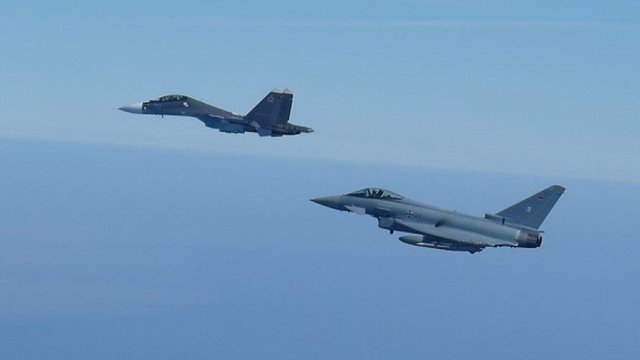Prospects for Russia-Ukraine peace talks
One of the most frequently discussed topics in the context of the Ukrainian war for more than two and a half years is the potential peace talks. Calls from politicians and officials to come to the negotiating table regularly appear in the media, offering various plans that could serve as a basis for peace talks, including from countries not directly involved in the hostilities.
Since the full-scale invasion of Ukraine, there have even been several rounds of talks between Russia and Ukraine through various mediators, but so far these have not produced results beyond POW exchanges. In this context, attention must be paid to the factors that influence the likelihood of peace talks and their potential outcome.
While two countries are directly involved in the war, the indirect impact of the war affects a much larger number of countries. This means that the course of the war, and thus the opening of peace negotiations, can be directly or indirectly influenced by other countries. Given the dynamics of war, the political positions of states can change in the context of war, resulting in a set of interrelated factors influencing peace negotiations, which are discussed further below.
Strategic factors
The primary factor directly influencing the willingness and interest of the parties to enter negotiations is the situation at the frontlines. In the context of war, the belligerents make a calculation as to which instruments are better suited to achieve the desired objectives in the given situation. Confidence in one's ability to achieve political objectives through military means reduces the interest in entering negotiations and risks undermining the maximum gains that can achieved by having the initiative on the battlefield. What is happening on the battlefield is an important consideration for negotiating positions: superiority and initiative at the front mean a greater ability to impose terms on the other side, as the weaker side is more inclined to cease hostilities.
Consequently, the initiation and development of peace negotiations requires an understanding on the part of the parties involved that this is an acceptable instrument for protecting their interests and achieving their objectives.
In the context of the peace talks, it is important to highlight the Istanbul peace talks between Russia and Ukraine, which took place in April 2022 and were mediated by Turkey. During the negotiations, the parties reached an initial agreement on Ukraine's future status - military neutrality, reduced armed forces, but with the possibility of joining the European Union (EU), while the status of Crimea, Donetsk and Luhansk would be addressed in further negotiations.
The so-called Istanbul Communiqué is a draft agreement to which Russian officials, including Vladimir Putin, regularly refer to in their statements. In this way, Russia is attempting to portray itself as ready for negotiations, while referring to a narrative that no longer reflects the current situation. The actual concessions made by Ukraine were influenced by the local and international context: only a month and a half since the start of the full-scale invasion, there was uncertainty about Ukraine's ability to defend itself successfully, as well as about the willingness and ability of Western countries to provide Ukraine with the necessary military and economic support.
Ukraine's willingness to compromise was also influenced by the disclosure of crimes committed by the Russian Armed Forces in the occupied territories, which had repercussions for both Ukrainian and Western societies: it became clear what the population in other occupied territories would be subjected to, while reinforcing the view that this should not be allowed to go unpunished.
The second factor influencing the start, progress and ultimately the implementation of peace talks is the support of the societies involved. Public attitudes towards peace negotiations confer legitimacy on the officials who participate in the negotiation process on behalf of the state, and public support, or lack thereof, reflects not only on the domestic political situation, but also on the state's ability to implement the agreement. This issue is particularly important for Ukraine, whose democratic system allows the people to express their opinion and thus their approval for a ceasefire or a negotiated end to the war. Sociological data from March of 2024 illustrate a complex situation, with 43% of the public in favour of negotiating peace with Russia.
However, the majority of the public opposes the idea of renouncing EU or NATO membership and is categorically opposed to the proposal to reduce the size and capabilities of the Ukrainian armed forces. The data also show that the Ukrainian public would not be prepared to accept what they see as an unjust peace, with most of the population acknowledging their preparedness to demand a change of government in such a situation.
The peace negotiation process thus brings with it a complex domestic political dimension, in which society participates as a stakeholder in the debate on what constitutes a just peace. A negotiated settlement without public support can foster feelings of resentment and grievance, which in turn can manifest itself not only domestically but also in foreign policy settings, for example by calling for an aggressive or revanchist foreign policy. In this context, the depolitisation of Russian society, combined with the state's monopoly on the information space, means that the public is potentially more willing to accept the Kremlin's position.
Ending the war without a complete capitulation of Ukraine would provoke resistance in some parts of society, but the general tendency of Russian society to accommodate the Kremlin's positions would prevail, complemented by the range of repressive instruments available to the Kremlin. It should be stressed that ending the war poses significant long-term domestic political challenges for Russia, for example in terms of demobilisation of soldiers or state budget planning.
The domestic political situation in Western countries is a much-discussed factor. Ukraine's position in the war is closely linked to the political resources of its international partners, and consequently the mood of Western publics, including the elites, towards Ukraine which can directly exert pressure in favour of an early start of peace talks and a quicker compromise. Ukraine is clearly aware of its position and part of its public diplomacy since February 2022 has been aimed directly at Western societies with the aim of explaining why Ukraine needs to be supported.
One of Ukraine's objectives in invading the Kursk region in the summer of 2024 was precisely to demonstrate its offensive capabilities in order to prevent the view of Ukraine losing taking root. However, recent domestic political developments in some Western countries show that the slogan of the need to cut aid to Ukraine is not a marginal one. In the recent regional parliamentary elections in Germany, parties whose rhetoric, among other promises, advocates normalisation of relations with Russia and a halt to military support for Ukraine made significant gains in two states.
The opinion of Western societies points to a potential vulnerability - risk tolerance. Russia has a higher risk tolerance, i.e., a willingness to risk escalation that stems from Russia's foreign policy principles. Russia has demonstrated this, for example, by conducting nuclear saber-rattling. In contrast, the logic of Western action is focused on escalation control and the need to avoid unplanned escalation. Russia has long sought to exploit this asymmetry against Western societies, and there is no reason to believe that Russia will stop it any time soon, even though it has not yet brought any clear benefits.
Far-reaching consequences
Russia’s invasion of Ukraine is also very important in the context of the international political system. Russia has repeatedly postulated that its foreign policy is aimed at changing the existing rule-based international system into a multi-polar one. Peace negotiations leading to the legitimisation of Russia's control over the occupied territories of Ukraine would create a dangerous precedent in which unprovoked aggression by a nuclear power, also including war crimes, would not be stopped or clearly punished.
Although such a precedent would not mean an immediate repetition of the scenario elsewhere in the world, but it would seriously undermine the credibility and prestige of the current international system, especially the Western powers as the main enforcers of the international rules. It would, in fact, demonstrate that it is possible to unleash aggression and then force the victim to make concessions without adequate punishment. This is linked to a moral problem for Ukraine, namely that concessions to Russia would mean not only a legal renunciation of its own territories, but also of the Ukrainian citizens living in the occupied territories, who would thus lose hope and possibly a way of returning to Ukraine.
The most fundamental problem would be precisely to make concessions to an aggressor state that has committed crimes against the Ukrainian people, and such concessions would have to be accepted not only by the Ukrainian society, but also by the Western.
One of the central issues in inter-state relations is the fulfilment of commitments. In the Ukrainian context, the 1994 Budapest Memorandum on security assurances in connection with Ukraine's accession to the Treaty on the Non-Proliferation of Nuclear Weapons clearly illustrates this problem. This is an agreement signed by Ukraine, Russia, the UK and the US to provide Ukraine with security assurances in the context of its commitment to non-proliferation.
The first point of the Memorandum is the signatories' guarantee to respect Ukraine's independence, sovereignty and borders. Understandably, such recent experience with non compliance is sensitive for Ukraine and affects its perception of other types of negotiations.
The Minsk agreements signed in 2014 and 2015 were aimed at stopping hostilities in the Donetsk and Luhansk regions and creating a framework for resolving political and military issues. Practice has clearly shown that the implementation of agreements can be delayed and, in fact, sabotaged in the name of various interests.
Ukraine's experience also shows that the involvement of international observers does not guarantee the implementation of commitments if they do not have clear instruments of coercion at their disposal. The implementation of agreements and the willingness to comply are determined by the countries themselves, which can undermine national and public support for peace negotiations.
Regarding Ukraine, the potential involvement of third parties in providing guarantees is sometimes considered, but this does not exclude the possibility that countries simply might not adhere to negotiated settlements.
The final problem, which forms the basis for any amicable settlement, is mutual mistrust. The negotiating parties, and especially the warring parties, must be able to trust the other side that the agreement will be honoured in the long term and lead to changes in policy and behaviour. Despite Russia’s different and conflicting explanations for the invasion’s objectives, long-term peace in Ukraine requires confidence that Russia will not use it to buy time and prepare for a new invasion.
Similarly, Russia would need confidence that the sanctions imposed against it will be eased over time and that Ukraine's relations with Western countries, particularly in the area of security policy, will not be deepened. The fact that this conflict of interests exists at the strategic level makes it difficult to build mutual trust. That is to say, the West wants its neighbours to be stable and highly developed, while Russia wants its neighbours to be weak and therefore easily influenced.
Mutual mistrust can be mitigated by cooperation in other areas and gradually expanded, thus demonstrating a willingness to build constructive relations, but this does not address the root cause of mistrust. The war is caused by Russia's foreign policy, and long-term peace inherently requires a change in Russia's political outlook, which is not something that is currently on the table and is also viewed sceptically by the Ukrainian public.
The above mentioned factors illustrate the complexity of the negotiation process and the path to it. Each of the factors involve several aspects and considerations which are dynamic and dependent on processes both within and outside the belligerents. The factors may be complementary or even mutually exclusive, making the overall situation dynamic, and therefore inherently impossible to predict the initiation, progress and successful conclusion of the negotiation process with certainty.
It is important to stress that negotiations and an active war are not mutually exclusive - they can take place simultaneously, thus influencing the negotiating positions. The negotiation process can be influenced by third parties, but the final say on the outcome and implementation of the negotiated terms belongs to Russia and Ukraine.
You can find more analysis o topical matters by SAB at its official website.



























